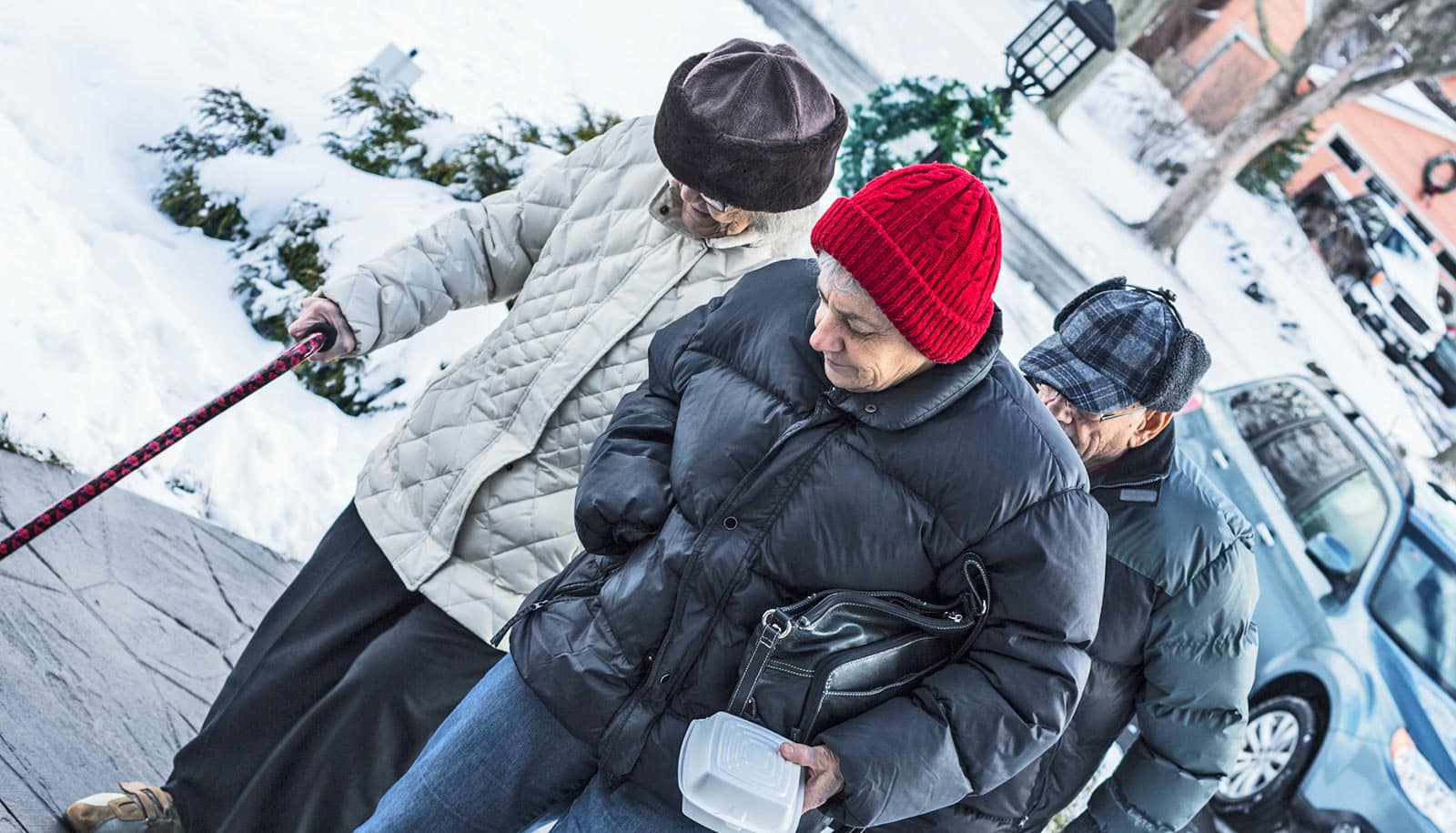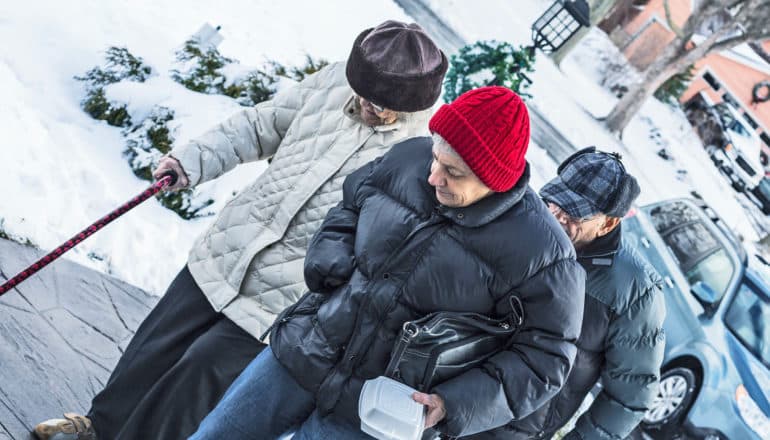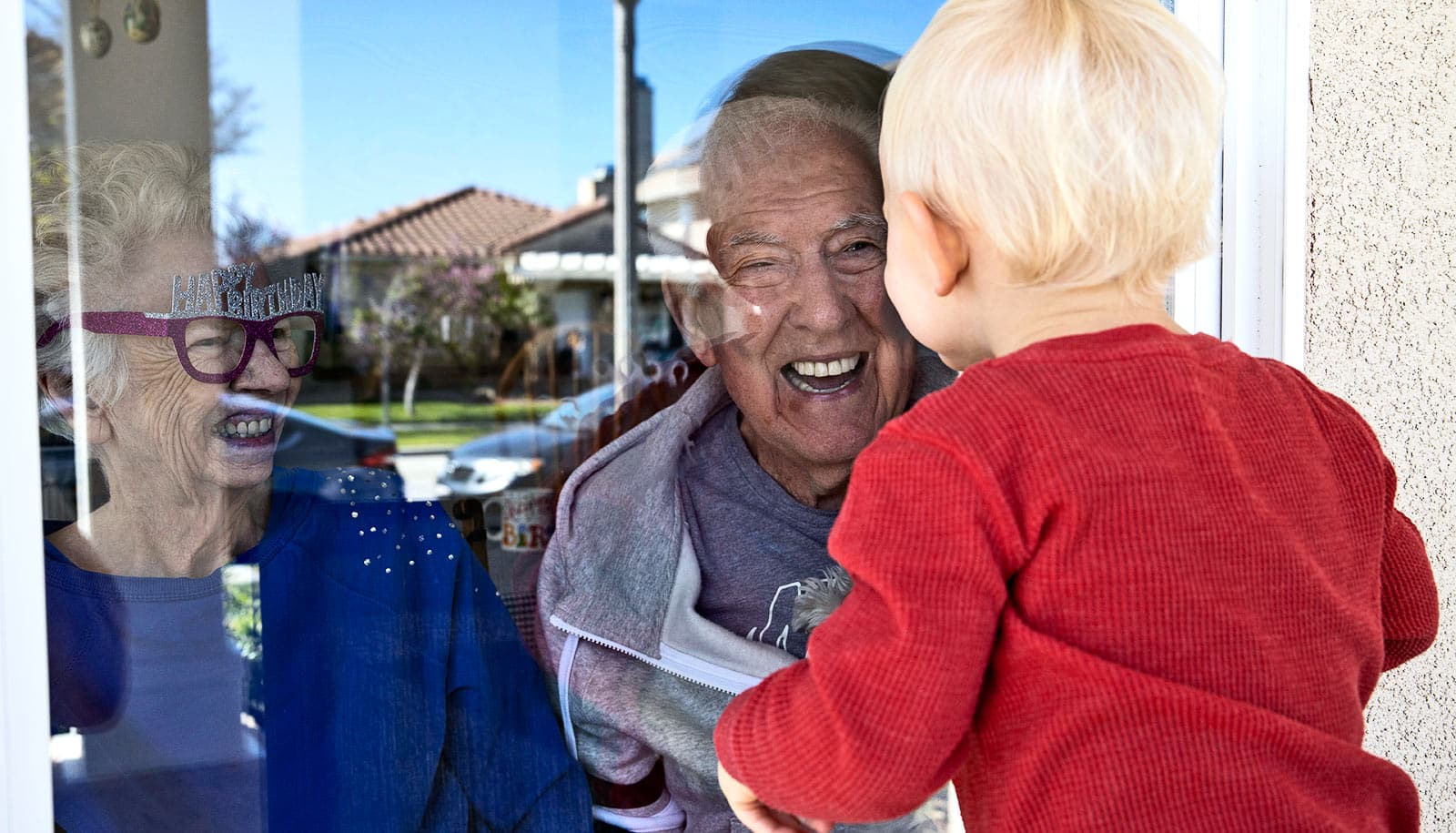
(Credit: Getty Images )
Family caregivers rarely hear ‘do you need help?’
Fewer than one-third of caregivers say health care workers regularly ask if they need support. "It's a potential point of intervention for improving care."

Health care workers don’t often ask family caregivers if they need support in managing older adults’ care, according to a new study.
Researchers say most caregivers surveyed for the study report that health care workers listen to them (88.8%) and ask about their understanding of older adults’ treatments (72.1%). But a much smaller proportion (28.2%) say health care workers always or usually ask them whether they need help in caring for the older adult.
The figure was significantly higher, 37.3%, for a subset of people caring for older adults with dementia.
The study, in JAMA Network Open, was an analysis of survey data from 1,916 caregivers, mostly spouses or other family members, who provide care to older adults with activity limitations living in community settings such as private homes, apartment buildings, or senior housing.
“These results suggest that we as a society could do a better job of supporting family caregivers, who are providing the lion’s share of day-to-day care to older adults with activity limitations,” says lead author Jennifer Wolff, professor in the health policy and management department at the Bloomberg School at Johns Hopkins University.
Nearly 20 million Americans are unpaid, usually in-family caregivers for adults over 64, according to the National Academy of Sciences, Engineering, and Medicine.
The care they provide often includes help with taking medication, bringing older adult patients to a health care facility, and assisting with other health care activities. Given these important functions, the interactions between these caregivers and health care workers can affect the quality of care for the older adult patient.
“It’s a potential point of intervention for improving care,” Wolff says.
To get a better picture of this caregiver/health care-worker interface, Wolff and colleagues analyzed 2017 survey data from the National Health and Aging Trends Study (NHATS) and the related National Study of Caregiving (NSOC), including 1,916 caregivers assisting 1,203 community-living, activity-limited older adults. The average caregiver age was 59. About 900 of these caregivers reported having interacted with health care workers of the older adult in the prior year, and also provided responses to key questions about those interactions.
The study results highlight the fact that caregivers are still largely disconnected from the health care system for older adults, which in turn suggests that there is the potential to improve the quality of care, Wolff says.
“That could mean identifying caregivers who could use care-related education and training or who simply need a break, for example, through temporary ‘respite care’ of the older adult patient.”
“We’re developing strategies to more effectively engage family caregivers in care delivery,” Wolff says.
Additional coauthors are from the University of Michigan and Johns Hopkins. The National Institute on Aging funded the work.
Source: Johns Hopkins University
The post Family caregivers rarely hear ‘do you need help?’ appeared first on Futurity.
Share this article:
This article uses material from the Futurity article, and is licenced under a CC BY-SA 4.0 International License. Images, videos and audio are available under their respective licenses.
Related Articles:
4 ways to stop stereotyping older adults during COVID-19
April 17, 2020 • futurityFamily caregivers want more training and support
May 28, 2020 • futurityLinks/images:
- https://www.futurity.org/dementia-caregivers-sleep-1826842/
- https://doi.org/10.1001/jamanetworkopen.2019.19866
- https://www.futurity.org/dementia-caregivers-coping-skills-2062462-2/
- https://www.futurity.org/us-policy-caregivers-1133572-2/
- https://www.jhsph.edu/news/news-releases/2020/family-caregivers-are-rarely-asked-about-Needing-assistance-with-caring-for-older-adults.html
- https://www.futurity.org/caregivers-support-older-adults-2263892/
- https://www.futurity.org


